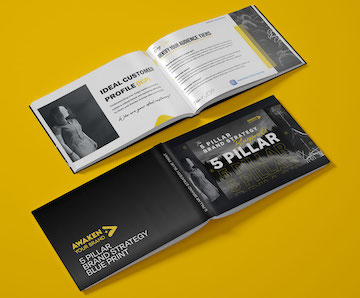Yesterday I was at a business networking lunch and met quite a few startups and venture funded company CEOs and entrepreneurs. As an experiment, I asked each of them one simple question and was amazed at how almost all of them struggled to answer it. This question is so fundamental to any business success, that it is hard to believe businesses don’t spend the time and effort to have a clear answer to it.
How is your business different from your closest competitor?
A simple question with profound implications. A typical answer that most of the business owners had was that they were better than their competition. When I probed them further, they would say their product/service is better, of higher quality and so on.
But if you think about it, this is what any business would say. Have you ever heard any business owner say that their product/service is of ok quality and that they are a so-so company?
Of course not! Well, except perhaps when the business is trying to get some attention with negative marketing techniques.
Understanding this question and how it impacts your target market is the key to ensuring that you create a successful brand and your brand enjoys success in the crowded market place. If you look at it from your ideal customer’s perspective, you would realize that they are overloaded with visual and marketing messaging from brands trying to open up their wallets. And in most cases, every one of these brands would have the same message and boast about the same bland, vague and quite generic USPs.
Here are some ways to differentiate your brand from your competition:
1) Identify your core values
If you are in a homogenous market where your product/service is almost a commodity then stop talking about how you are better than your competition because you offer better quality or that you are cheaper. Instead come up with a set of core values that would enable you to talk about your brand in terms of some thing more than your product/service
2) Build a brand story
Once you have your core values laid out, work on building a brand story that goes beyond your current service/product. Build a story that has its roots in authenticity. Explore your own story of how you came about building the company or launching the product like how one of our clients did to really take their brand to the next level.
Look at what has motivated you in your life. What has challenged you? What can you take from your story that resonates with the world view of your ideal customers? What anchor can you use to tell the story effectively?
3) Get a business mentor
Look around, research and identify business leaders in your industry or market segment and reach out to them. Ask for help on how to tell you story. If you have the budget, engage a brand strategist to help you tell your story.
4) Be DIFFERENT or die!
It is obvious these days that we are all selling commodities. In the past the list of commodities included things like rice, copper, oil etc. Then came the mass production which included things like mass produced goods and items added to that list. Now, even services and what could be considered as unique products are part of the commodity world.
If every one else in your market segment is selling the same product or service as you do, then think of what you can do offer differently. It is not about being better or cheaper or faster etc. It is about being different! A superior product is a no-brainer. It is a given. It is expected. By focusing on superior customer service, you tell a different story than most of your competition. Turn even your complaining customers into your brand evangelists.
Look at how Virgin differentiated itself from all the other airlines out there!
5) Find an emotional connection
We all think we do connect emotionally with our target market. But in most cases we don’t. As long as you think about the features of your product or service, you are not thinking emotionally. As long as you simply tell some one, when asked, the features of what you do, you are not connecting emotionally. The next time some one asks you what you do or what your brand does, resist the temptation to simply tell them about the product or service and instead tell them how it would emotionally help some one.
- Do your hats merely cover your customers heads or do they make them feel sophisticated and important?
- Do you help your clients mitigate lawsuits or do you help them reduce the risk of a disaster?
- Does your salon make your customers “look” pretty or does it make them “feel” pretty?
- Does your restaurant offer great food or do you enable the community to stay connected?
Conclusion
Although I touched upon varied aspects of being the best brand you can be in this article, I would like to finish off by reiterating how important it is that you identify, understand and then distill the message of how you are different from your competition. The day you do this, your brand and your business will start elevating to whole new levels.

